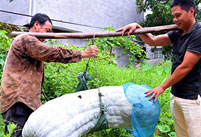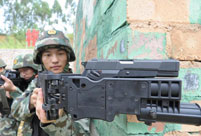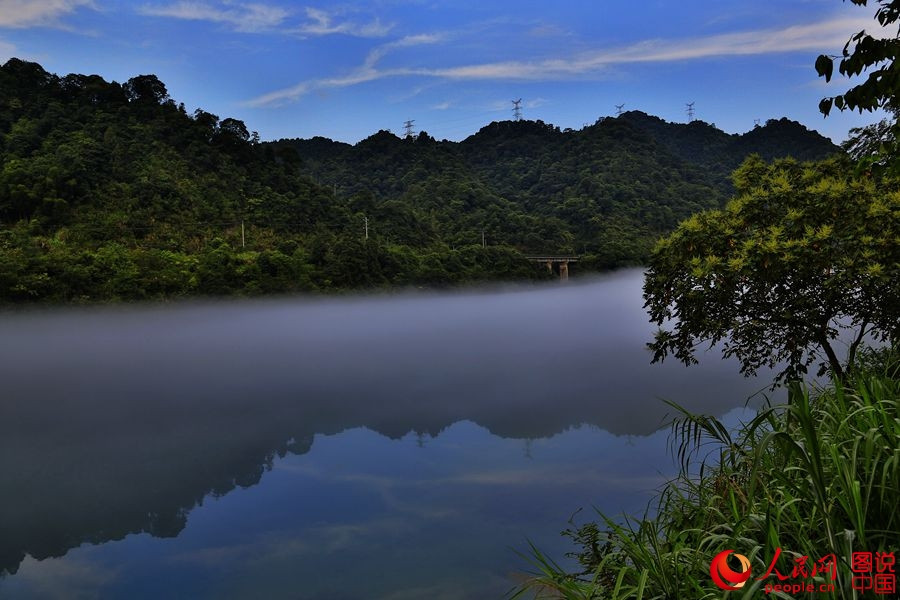 Vintage cars show kicks off in London
Vintage cars show kicks off in London
 Gorgeous scenery in NE China
Gorgeous scenery in NE China
 Picturesque Barkol grassland in Xinjiang
Picturesque Barkol grassland in Xinjiang
 Small Wild Goose Pagoda - A World Cultural Heritage Site along the Silk Road
Small Wild Goose Pagoda - A World Cultural Heritage Site along the Silk Road
 Maritime Silk Road Luxuries of the Han Dynasty
Maritime Silk Road Luxuries of the Han Dynasty
 Ciao! Chinese beauties!
Ciao! Chinese beauties!
 An eye feast: BFA freshmen registration
An eye feast: BFA freshmen registration
 Top 10 most lavish weddings
Top 10 most lavish weddings
 Most amazing chi-pao beauties
Most amazing chi-pao beauties
 Chinese lingerie brand arrives in Las Vegas
Chinese lingerie brand arrives in Las Vegas
EDINBURGH, Sept. 18 -- On a damp and foggy morning, early birds of the historic Scottish independence referendum voters on Thursday came to a polling station in northwest Edinburgh to escape the queue and save time.
From 7 a.m. to 10 p.m. British Summer Time, ballots for the choice of "Yes" or "No" would be cast at polling stations in 32 local authorities across Scotland, with a predicted turnout of 88 percent.
After voting, Mike Gray, with a "No" sign sticker on each side of his smart suit's collar, told Xinhua that he expected the outcome of the referendum will be "a narrow win" for the Better Together campaign, and more powers are expected to be delivered to the devolved Scottish parliament.
A middle-aged couple, who voted together with their teenage girl, said, "we are 'Yes' voters as we would like to vote for the government of our own choice. We didn't vote for the Westminster government."
This is the first Scottish independence referendum in Britain's history and official figures showed that about 97 percent of those eligible to vote in Scotland signed up to vote in the referendum, which is set to be the biggest poll in Scotland's history.
Expected to be announced at around 6.30 a.m.- 7.30 a.m. on Friday morning local time at the earliest, the final result of the referendum is too close to call, according to the latest polls.
If a simple majority of Scots vote for independence, Scotland would become independent on March 24, 2016 after a period of negotiations with the rest of Britain, according to the whitepaper Scotland's Future published by the Scottish government on Nov. 26, 2013.
If the "No" campaign wins, British Prime Minister David Cameron, leader of the Conservative, Labor Party Leader Ed Miliband and Deputy Prime Minister Nick Clegg, leader of the Liberal Democratic Party, offered more powers for Scotland starting on Sept. 19.
In October 2012, Cameron and Scottish First Minister Alex Salmond, leader of the ruling Scottish National Party, signed the Edinburgh Agreement, allowing Scotland to hold an independence referendum in autumn 2014.
It is also the third referendum for Scotland after the two previous ones held respectively in 1979 and 1997 on Scottish devolution.
The referendum in 1979 failed to gain the mandatory 40 percent of the electorate, while the latter succeeded with an overwhelming majority of voters backing devolution.
As a devolved legislature, the Scottish parliament was reconvened in 1999 with authorities over some limited areas of home affairs, and the parliament of the United Kingdom keeps "reserved" powers including the ability to amend the terms of reference of the Scottish parliament.
 Giant white gourd weighing 87 kilograms appears in SE China
Giant white gourd weighing 87 kilograms appears in SE China Advanced arms help to safeguard China-ASEAN Expo
Advanced arms help to safeguard China-ASEAN Expo Leading director Wang Quan'an detained for 'buying sex'
Leading director Wang Quan'an detained for 'buying sex' Heaven on earth: Dongjiang Lake in Hunan
Heaven on earth: Dongjiang Lake in Hunan Mixed reaction to smartphone sidewalk
Mixed reaction to smartphone sidewalk 'Rainbow running' race in Jiangxi
'Rainbow running' race in Jiangxi Amazing aerial photos of China's Xisha Islands
Amazing aerial photos of China's Xisha Islands Beautiful postgraduate teaches in remote area
Beautiful postgraduate teaches in remote area Top 10 world's highest-paid models 2014
Top 10 world's highest-paid models 2014 Lingerie show at 2014 Miss China
Lingerie show at 2014 Miss China Songstress Li Xianglan dies at 94
Songstress Li Xianglan dies at 94 Police recruiting posters
Police recruiting posters Anshun Daxi- Living fossil of Chinese drama
Anshun Daxi- Living fossil of Chinese drama Urban farmers in China
Urban farmers in China 'Firepower-2014 Weibei'military exercise
'Firepower-2014 Weibei'military exerciseDay|Week|Month